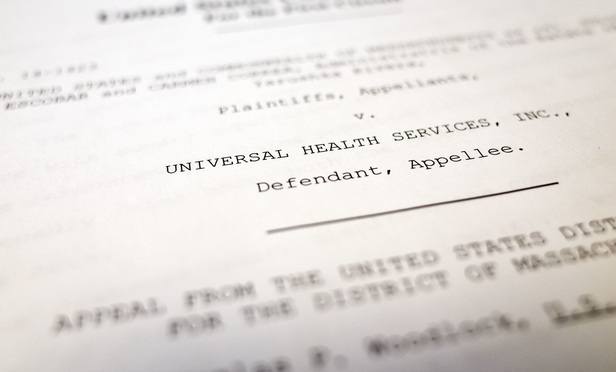The federal False Claims Act is the government’s chief fraud-fighting tool, and a lucrative one at that. On Tuesday, the U.S. Supreme Court wrestled with how false a claim for payment must be in order to earn the law’s punishing penalties.
In Universal Health Services v. Escobar, a major health insurer, backed by medical, pharmaceutical, private colleges, criminal defense groups and others, attacked a theory of liability known as “implied certification.”
This content has been archived. It is available through our partners, LexisNexis® and Bloomberg Law.
To view this content, please continue to their sites.
Not a Lexis Subscriber?
Subscribe Now
Not a Bloomberg Law Subscriber?
Subscribe Now
LexisNexis® and Bloomberg Law are third party online distributors of the broad collection of current and archived versions of ALM's legal news publications. LexisNexis® and Bloomberg Law customers are able to access and use ALM's content, including content from the National Law Journal, The American Lawyer, Legaltech News, The New York Law Journal, and Corporate Counsel, as well as other sources of legal information.
For questions call 1-877-256-2472 or contact us at [email protected]



